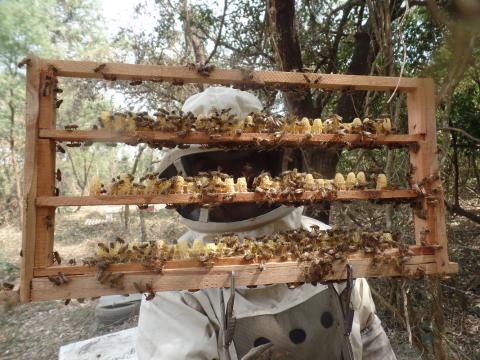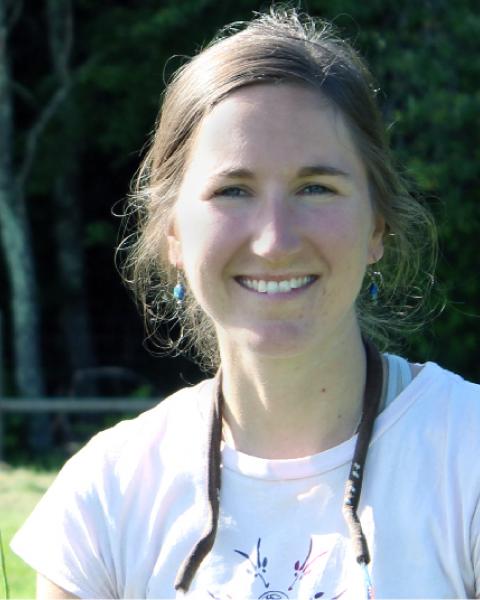Honey Bee Queen Rearing Program

Every year tens of thousands of honey bees are transported from southern states to New England and sold in 3 lbs. packages. This is the way most beekeepers acquire their honey bees. They are offered some choice on the type (or race) of honey bee which can vary in productivity, demeanor and pest-resistance. Though this model of distribution has worked for decades, recent hive loss trends continue to increase at a concerning rate. Even with chemical treatments to control parasites and disease, winter hive losses in New England continue to rise, with over 50% of hives lost in New Hampshire in 2016-17 & 2017-18.
As threats to honey bee populations appear to be on the rise, some in New England are having success by breeding their own queen bees to select for genetic traits better adapted to our seasonal climate. Many of these queen breeders even run treatment-free apiaries with better survival rates than those practicing standard treatment methods on southern-package bees. Their success in overwintering colonies shows the benefits of regional breeding programs. These beekeepers are fostering the honey bee’s natural ability to cope with various stressors. By selecting for specific genetic traits (similar to how we breed dogs with different traits to do different jobs), these apiarists are controlling and influencing the natural breeding process to produce bees better suited to survive in New England.
To enhance this effort, UNH Cooperative Extension and Northeast SARE are offering a unique training opportunity for advanced beekeepers interested in rearing queens. Five selected participants will attend a queen rearing workshop at Cornell University’s Dice Bee Laboratory where they’ll learn how to graft and produce queen bees on a large scale. They will also be connected with a network of existing breeders including apiary tours and discussions with some well-known New England bee breeders. This effort will help to increase the availability of regionally-adapted queens and produce healthier, more successful honey bee colonies in the northeast.
If you know an experienced beekeeper ready to learn new skills, encourage them to apply for the Queen Rearing Program. The queen rearing application is now closed. Stay tuned for upcoming events in beekeeping, making splits and nucs this summer!
